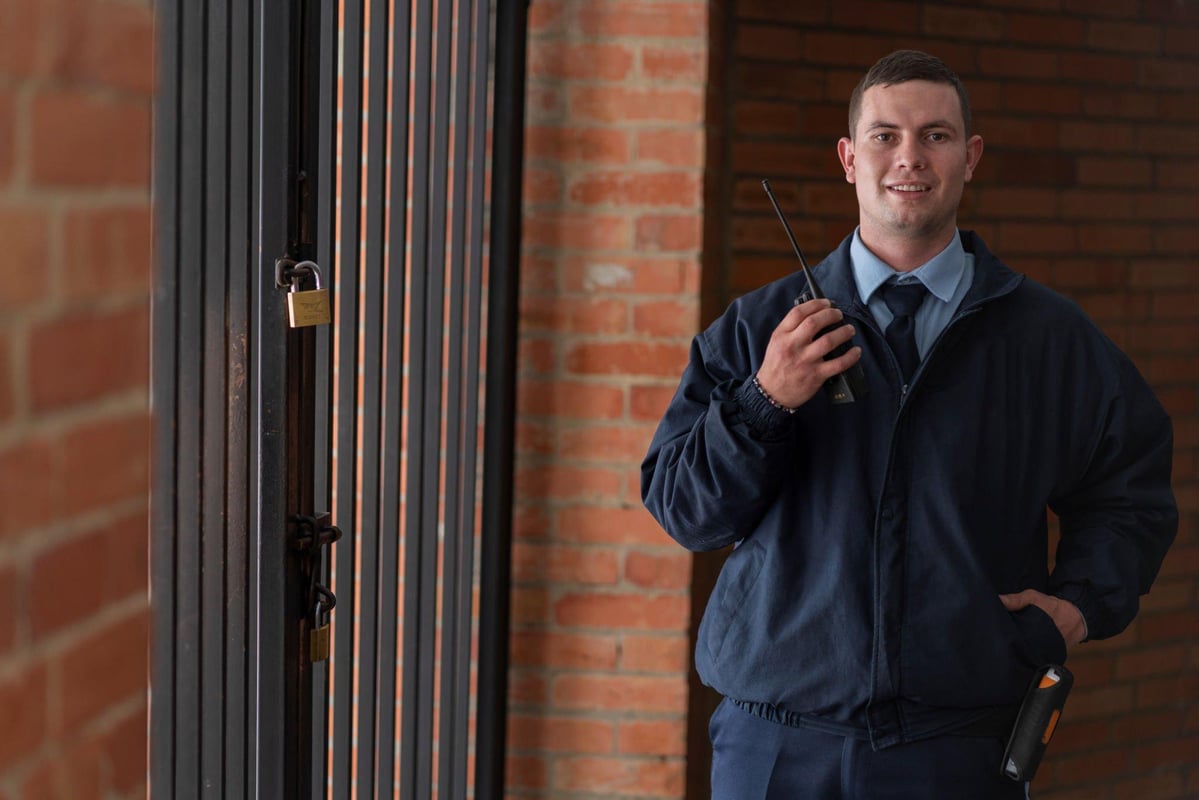
Financial aid (may be available)

Financial aid (may be available)

Financial aid (may be available)

Financial aid (may be available)
$80 total
$24.99 total
$80 total
No cost info

No cost info
No cost info
No cost info
No cost info
$120 total
No cost info
Are you located in Spokane and looking to start a career as a security guard? You're in the right place. This blog walks you through what a security guard does, how to meet Washington State’s training and licensing requirements, and what to expect from your classes. You'll also learn how to get certified, find jobs, and explore additional career paths in the field of security.

A security guard is a licensed professional trained to monitor and protect people, property, and assets. Their core responsibilities include:
Security guards work in places like hospitals, retail stores, schools, government buildings, and event venues.
To work as a security guard in Spokane or anywhere in Washington, you must meet specific requirements from the Washington State Department of Licensing (DOL).
You must:
Once you've completed the training, your employer will help you apply for your license through the Washington DOL.
Licenses are valid for one year and must be renewed annually. The DOL requires you to complete 4 hours of annual refresher training to stay licensed.
More info is available on the Washington DOL security guard licensing page.
When choosing a security guard class in Spokane, consider these factors:
Explore Dreambound’s listings to compare class formats, tuition, and start dates.
Washington’s 8-hour pre-assignment training is designed to prepare you for real-world responsibilities. A typical course includes:
Some courses may also include optional modules on defensive tactics or equipment handling for those planning to move into armed roles.
Once you finish your training, your security company will initiate your application with the Washington DOL. The steps are:
You cannot legally work as a guard until your license is active.
Licenses are valid for one year and must be renewed annually. You’ll need to complete 4 hours of annual refresher training to keep your license in good standing.
With your license in hand, here’s how to find security jobs in the Spokane area:
Once licensed, you can grow your skillset and expand your opportunities with these courses:
How much does it cost to train a security guard in Washington?
Training programs typically cost $100 to $300, depending on the provider.
How much is a security guard license in Washington?
The initial license is $101, with renewal costing $95. There’s also a $5 printing fee, and fingerprinting fees are paid separately.
Which course is best for security guard training?
Choose a DOL-approved pre-assignment course that covers legal, emergency, and field procedures.
How long is the basic security guard course in Washington?
Washington requires 8 hours of pre-assignment training before licensure, plus 4 hours of refresher training each year.
What is the average salary for a security guard in Spokane?
According to BLS May 2024 data, security guards in Spokane earn an average of $46,400 per year or $22.31 per hour.
A career as a security guard in Spokane offers stability, responsibility, and a clear path to growth. With Washington’s structured licensing process, you can get started in just a few weeks. Whether your goal is to build a long-term career or step into law enforcement later, this role is a strong foundation.
Use Dreambound to compare state-approved training programs near you, and start your journey today.
Looking to explore security guard careers in other states? Start here:
For other training opportunities, explore the following guides:
Dreambound's platform allows prospective students to find the right educational program for them through searching, filtering, and connecting with our extensive selection of career & technical education partners.
Dreambound has over 70 programs across healthcare, technology, business, and industrial trades. This includes programs such as Medical Billing, Cybersecurity, and welding.
Some of our schools offer financial aid for those who qualify. Many others offer payment plans, where you can pay the cost of class over time.
Yes, Dreambound offers many online programs. On Dreambound's search, you can filter by online, in-person, and hybrid (part online, part in-person).
Dreambound is completely free for you to use! We are supported by schools and organizations who pay to advertise on our website, so we can offer all of our career resources for free.